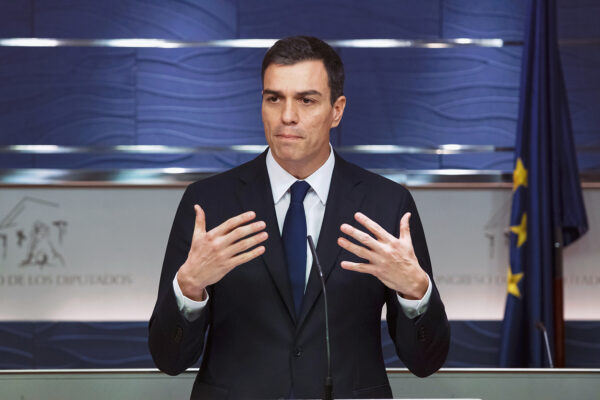
Spain’s ruling People’s Party continues to fall in the polls. Its support is down from 33 percent in the last election to under 25 percent in most recent surveys. The reasons are corruption scandals and the ongoing Catalan independence crisis.
The liberal Citizens, who support — but are not a part of — Mariano Rajoy’s government, are up. Some polls even have them as the largest party of Spain. Their promise to clean up politics, and the hard line they have taken against the Catalan separatists, is resonating with center-right voters.
The left, El País points out, seems unable to exploit Rajoy’s unpopularity. Support for the mainstream Socialist Party is virtually unchanged at 20-22 percent. The far-left Podemos is down several points.
International confusion
El País blames internal confusion.
The Socialists, scared by Podemos nearly overtaking them in 2016, have moved to the left under Pedro Sánchez and lost moderate voters to the Citizens.
(Leftwingers argue the party would have lost even more voters, to Podemos, if it had gone with Susana Díaz and her centrist policy.)
Podemos leader Pablo Iglesias has centralized power and alienated more pragmatic members of his party, led by Iñigo Errejón. The party’s relatively pro-Catalan stance has also not endeared it to voters elsewhere in Spain.
Clean hands
Last year, when both left-wing parties held leadership contest, I wrote:
If the parties are serious about taking power, they will turn to Díaz and Errejón. If they prefer to keep their hands clean in opposition, they ought to stick with Sánchez and Iglesias.
That’s what they did and the result is as I predicted.
